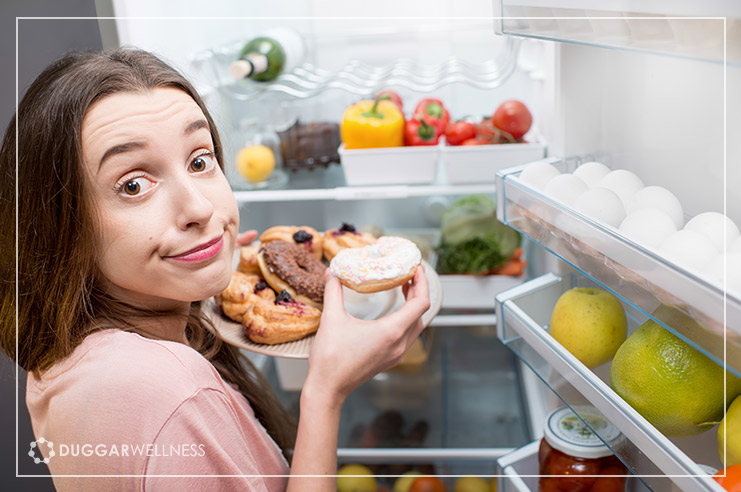While new research on nutrition seems to come out every day, many people continue to struggle with maintaining a healthy diet and staying fit. This is because there are additional factors that influence how much and what type of food we consume. One of these factors is stress, which is linked emotional eating.
Emotional eating has many causes. The following are some of the main reasons – besides hunger – that stressed people eat:
Cortisol Cravings
Stress can bring on increased levels of cortisol, known as “the stress hormone.” Cortisol has a beneficial function in the body, but excessive levels of cortisol brought on by chronic stress can cause a slew of problems in the body. Among other things, high levels of cortisol can create cravings for salty and sweet foods. In previous centuries, this enabled people to bulk up on foods that would sustain them during times when food is scarce; however, in modern times and industrialized nations, when food is rarely scarce, this previously adaptive mechanism causes excess weight gain.
Social Eating
Often people who are under stress will seek out social support, which is a great way to relieve stress. Unfortunately for dieters, when people get together — especially women — we tend to go out for a nice meal. Crying on your friend’s shoulder over a couple of hot fudge sundaes, going out for a night on the town and a plate full of fried appetizers, sharing a bowl of chips with the guys as you watch a game, or discussing the gory details of a nightmare date over cheesecake with your roommates (didn’t this occur in every episode of The Golden Girls?) are all social forms of emotional eating. It can make you feel better in the short term, but you may regret later.
Nervous Energy
When stressed or anxious, many people become “orally fidgety.” Sometimes this leads to nail biting or teeth grinding, and often it leads to eating when not hungry. Many people, out of nervousness or boredom, just munch on chips or drink soda to give their mouths something to do.
Childhood Habits
Many of us have comforting childhood memories that revolve around food. Whether your parents used to reward you with sweets, fix your boo-boos with an ice cream cone, or make your favorite meal (or take you out to one) to celebrate your successes, you’d probably be in the vast minority if you didn’t develop some emotionally-based attachments to food while growing up. When in times of stress, few things can be as powerfully comforting or rewarding as your favorite food. Because many people don’t develop more effective coping strategies, this type of emotional eating is very common: people eat to celebrate, eat to feel better, eat to deal with the stress of being overweight.
Stuffing Emotions
Another emotional reason that many people eat is to quiet uncomfortable emotions. People who are uncomfortable with confrontation may deal with frustrations in their marriage with a piece of cake, for example, rather than with open communication. Food can take the focus off of anger, resentment, fear, anxiety, and a host of other emotions we’d sometimes rather not feel, and is often used for this purpose.
 160 N Main, Bountiful, UT 84010
160 N Main, Bountiful, UT 84010  801-677-7878
801-677-7878
